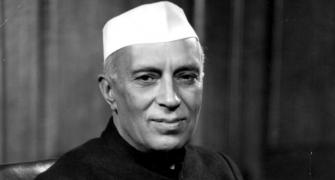Power scrips are on the trot in anticipation of strong reforms in the power sector shortly.
And on Monday, a host of power sector and related scrips proved firm.
PSU power equipment major Bhel climbed 2.6% to Rs 205.50. The scrip clocked good early volumes of 260,000 shares at the end of one-and-a-half hours of trade on BSE.
CESC (up 2.35% to Rs 19.60), ABB (up 2.1% to Rs 311) and Tata Power (up 0.7% to Rs 119.80), all moved upstream.
Power sector scrips and scrips which derive substantial revenues from the power sector have surged over the last few trading sessions. Bhel, for instance, gained 15.2% to the current Rs 205.50 from Rs 178.25 on 31 January 2003 . Besides the much-awaited power sector reforms, Bhel has also been boosted by reports that the power equipment major will bid for supplying equipment to the Rs 8000-crore Super Critical Technology Power project of National Thermal Power Corporation in Chhatisgarh.
The company will contend for the 1,980 MW coal-based project, bids for which had already been invited. This is the first power project in India with Super Critical Technology. It has three units of 660 MW each. The bids are likely be opened on 28 March 2003.
ABB has gained 17.4% in 7 trading sessions to the current Rs 311 from Rs 264.85 on 30 January 2002. Siemens has gained 7.7% in 9 trading sessions from Rs 297.95 on 28 January 2003 to the current Rs 321.
Power minister Anant Geete said on Friday that the Electricity Bill, aimed at reforming the power sector, will be considered in the forthcoming budget session Parliament beginning on 17 February 2003.
The Standing Committee has cleared the Bill with a few suggestions, and it will be taken up with the Union Cabinet on 11 February 2003.
The long-standing hurdles to improvement of the power sector will be removed once the Electricity Bill becomes an Act.
The passage of the Electricity Bill will be followed by a National Tariff Policy in order to bring about uniformity in the tariff fixation procedure by state regulatory commissions.
According to power sector analysts, the Electricity Bill seeks to abolish current restrictions on power generators and aims at reforming the sector. It will also improve the health of state electricity boards.
In December 2002, a parliamentary panel had cleared the Electricity Bill, that proposes to rationalise electricity tariff. The passage of the bill in Parliament, in fact, will give power companies access to transmission and distribution and they may even be made eligible to supply power directly to consumers.
Apart from the emphasis on private participation in the Bill, competition and efficiency, introduction of anti-theft laws at the state level, open access to the transmission and distribution network and time-bound restructuring of the SEBs has also given a serious thought.
The reforms in the power sector are expected to help power (generation, transmission and distribution) companies like Tata Power, according to players.
More Hot Pursuits







